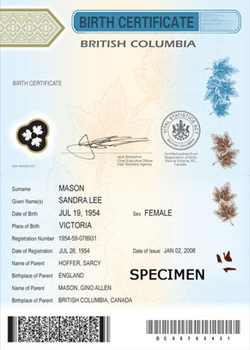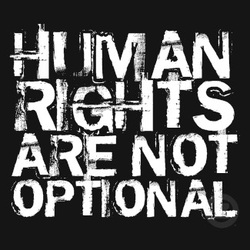Here's the skinny: we've already got trans human rights, even though human rights laws have not been changed to include 'gender identity' or 'gender expression' federally or provincially. While the fights for explicit human rights protections for trans* people are important, trans* people are already protected.
But how can that be?
The answer is that trans* people have won all the cases they have fought so far, federally or provincially, by relying on the ground of 'sex'. That has been true for almost 20 years.
Now, all of those cases have been brought by people who have transitioned or intend to transition: there are no cases so far in which the complainant says 'I am neither male nor female'; or 'I am cisgender but I am consistently misgendered'. However, some of the cases (including the first one in B.C.) concern pre-op trans* people. And there is no easy way for the law to distinguish between a preoperative trans* person on the one hand, and a gender variant person on the other. (Think about it: may take hormones, or not; does not experience themselves as the birth-assigned gender; may have surgery, or not; may experience transphobic discrimination...all true both of people who may be intending to transition to the "other" gender, and gender variant or gender non conforming people who do not).
So in my opinion it is virtually certain that gender variant and gender nonconforming people will be also able to advance successful human rights complaints on the ground of 'sex' if they are discriminated against.
So if that is the case, why do we need to change federal and provincial laws about human rights? As you know, one of the things on the queer still-to-do agenda is the inclusion of 'gender identity' in the federal and provincial human rights laws. The federal bill to amend the Canadian Human Rights Act is currently stuck in the Senate. Though that bill began with expanded language to cover both gender identity and gender expression, in its current form it will add 'gender identity' only to the list of protected grounds (along with sex, race, ancestry, place of origin, religious belief, physical or mental disability, etc).
In B.C. there has been no movement on adding 'gender identity' to the BC Human Rights Code to date. And there is no sign that the issue is on the legislative agenda.
Calling for changes to the human rights laws to SPECIFICALLY cover trans* folk performs an enormously important public education service. It also means that trans* people looking at those laws will be able to see immediately that they are protected from discrimination, rather than having to figure out that they will win if they use the ground of 'sex'. So those campaigns are enormously important.
But...there can be a downside: trans* people may believe that UNLESS 'gender identity' and/or 'gender presentation' are added to human rights legislation, they have no rights.
That would be a terrible result.
So: HAPPY PRIDE, and here's a toast - both to laws that specifically name trans* people, and to the fact that we can already fight discrimination against trans* people. When you are talking about and advocating for changes to human rights law, don't forget to mention that trans people already have protections.
Here's a link to our booklet, "Trans Human Rights".



 RSS Feed
RSS Feed
